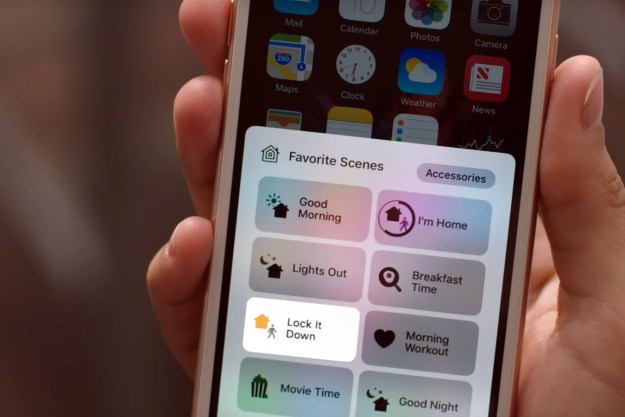Summer’s here, and at times it can be brutal, especially when there’s a heatwave. Many people are likely to stay indoors, far away from the scorching temperatures and intense humidity. Chances are you’re likely to crank up the air conditioner to get some much-needed relief. But, there’s a concern.
The coronavirus has dominated headlines for months now, and though the country is beginning to stir with life once more, it looks a little different. People wear masks, wash their hands, and take extra health precautions for the time being until doctors develop a completely effective treatment. In the meantime, there is a lot you can do at home to reduce your risk of contracting the virus — and some of those measures involve your air conditioner.
Can an air conditioner make you more prone to coronavirus?
The short answer? Yes.
New research shows that air conditioners may actually be able to spread coronavirus within enclosed, small spaces. Social distancing measures are in place to prevent prolonged contact between individuals in order to limit the spread. The six-foot guidelines are based on the theory that airborne droplets rarely move farther than six feet from someone’s mouth when they speak or cough. However, sitting in front or beside a powered vent may enable droplets to spread more easily.
The larger the droplet, the less time it spends in the air. However, very small droplets can remain in the air for a surprisingly long time. According to the study, droplets smaller than 5 nanometers linger in the air and can travel longer distances, especially if propelled by an external force — like an air conditioning vent.
Your air conditioner isn’t likely to transfer the virus from one room to another
Air conditioning systems have internal filters that capture small particles and pull them from the air. While studies have shown many of these filters are ineffective at stopping the spread of coronavirus, another factor plays a role in how the virus spreads. The shape of the unit itself.
Air ducts have numerous bends in them that are likely to inhibit droplets of water, even those smaller than 5 nanometers. While not completely impossible, the chance of an air conditioning unit pulling tainted air from one room and spreading it to another is low.

However, the air conditioner can affect your health in other ways. According to Mike Mayer, co-founder of the air conditioning company Windmill, “Optimal room temperature and a high standard for air quality are essential to maintaining a healthy immune system. When we were developing our product, we surveyed hundreds of New Yorkers and found that roughly 75% didn’t even know how to clean their air conditioners.”
The internal filters must be changed and replaced on a regular basis. According to the American College of Allergy, Asthma, and Immunology, indoor air quality plays a large role in allergic reactions and respiratory distress. Even if the air conditioner isn’t likely to spread the coronavirus, it may exacerbate the respiratory symptoms of the disease or make you more vulnerable to contracting it.
The ACAAI recommends keeping the humidity level in the home below 50%, scrubbing areas where mold may grow, and vacuuming regularly to reduce the amount of pet dander and other allergens in the air. You should also replace your air conditioning filter on a regular basis.
The Centers for Disease Control and Prevention has issued warnings that people with moderate to severe asthma must take extra safety precautions because they are at higher risk of contracting COVID-19. The organization warns that people with asthma should continue taking their medication and have an “asthma action plan” to control the condition, as well as disinfect surfaces they come in frequent contact with.
Is an air conditioner a risk?
Although an air conditioner can have a negative impact on your respiratory health, so can living in a home that is too warm. No one suggests removing your air conditioning unit. Instead, take steps to keep it clean and reduce the number of allergens produced in other parts of the home.
You may consider investing in an air purifier to remove harmful particles from the air, or a robotic vacuum to help eliminate pet dander from the floor. Air conditioners are an everyday part of life. As long as you take precautions and clean the system, there is nothing to worry about — but if you feel the need to sneeze or cough, do it away from the front of an air conditioning vent.
Want more news, reviews, guides, and features from Digital Trends? Follow us on Apple News, Google News, and Flipboard.
More on how the smart home protects you from germs
- Can air purifiers protect you from the coronavirus?
- Robot mops can’t sanitize your floors
- Can a smart thermostat protect you from the coronavirus?
- Smart home devices that can stop the spread of bacteria and viruses
- Can a UV phone sanitizers kill coronavirus?
Editors' Recommendations
- Dyson’s new AR mobile app shows where you forgot to clean
- Mila reveals a sleek new humidifier/air purifier combo at CES 2024
- Top ways smart tech can save Thanksgiving dinner
- Self-emptying robot vacuums: Do you really need one?
- 6 HomeKit settings you should disable (or adjust) right now




